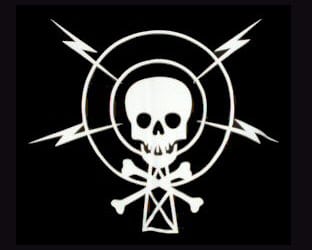The most surprising thing about the sale of Bonneville’s stations in four markets is the buyer: Hubbard Communications. Hubbard Radio Chairman Ginny (Hubbard) Morris told RBR-TVBR that her family has been in radio a long time and this seems a good time to expand.
Morris has been President of Hubbard Radio. She will become Chairman as Bonneville’s Bruce Reese comes aboard as CEO of the expanded group.
“We’ve been in radio since 1923. During the last big wave of consolidation we were really restrained because we were investing in a business called USSB. So, it worked out, I think, to our benefit that we were unable to participate in the frenzy. Now we’re in a great position to expand selectively. These markets, these stations, this leadership team is the best in the business – so we thought it would be a good way to start,” Morris said.
USSB was US Satellite Broadcasting – the smallest player in what was originally a three-company satellite TV business. It was also the only part of the Hubbard media empire ever to have public stock. It was sold to the biggest satellite TV company, DirecTV, in 1999 in a deal valued at $1.6 billion, including the majority stake held by the Hubbard family. Forbes magazine last year put patriarch Stanley S. Hubbard at #236 on its list of the 400 wealthiest Americans at an estimated $1.75 billion – tying him with Charlie Munger, the #2 guy at Warren Buffett’s Berkshire Hathaway.
As Morris noted, her late grandfather, Stanley E. Hubbard, began the company with a single radio station in Minneapolis-St. Paul back in the ’20s. He built KSTP-TV in 1948, adding video to the AM station by then carrying the call letters KSTP. The company primarily grew in television, although it once owned KOB-AM & FM Albuquerque, which it sold to Citadel Broadcasting. It also added two FMs to the AM in the Twin Cities and operates a regional radio network with affiliates in Minnesota and Wisconsin.
This deal with Bonneville, owned by the Church of Jesus Christ of Latter Day Saints, marks a dramatic expansion in radio for Hubbard. So, are more radio buys likely?
“We’re not actively looking at anything right now, but we believe in the future of radio and its place in the media landscape and advertising environment for as far as we can see,” Morris said.
Why now?
“We thought it was a good time. Clearly the trading marketplace has been stalled. But in terms of the industry I think we now know that what we all experienced a couple of years ago was related to the recession and not some underlying cracks in the structure of the industry,” Morris told RBR-TVBR. “We think that everything that made it a good business in the ’30s makes it a good business in 2011.”
RBR-TVBR note: Key related reports see:
Bonneville selling four markets to Hubbard
Analysis: Hubbard-Bonneville deal heats up the station trading market




